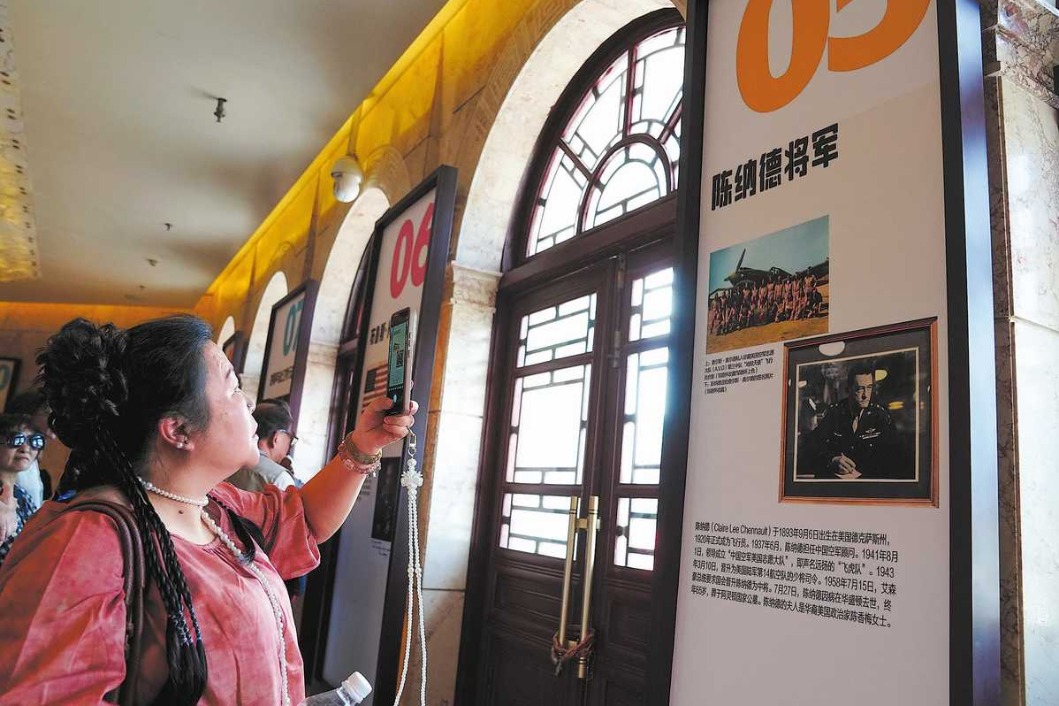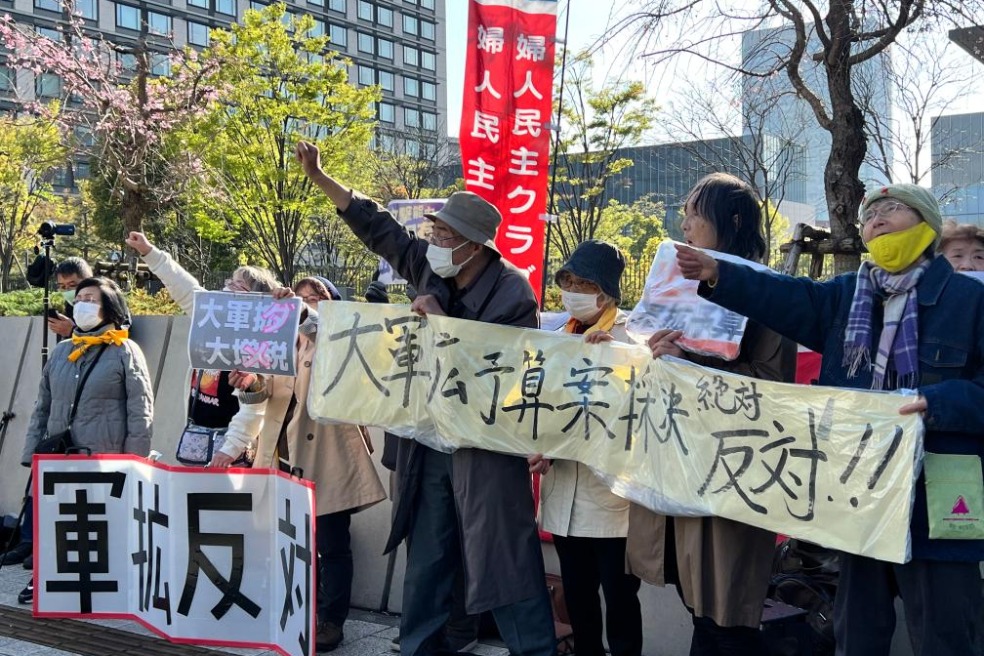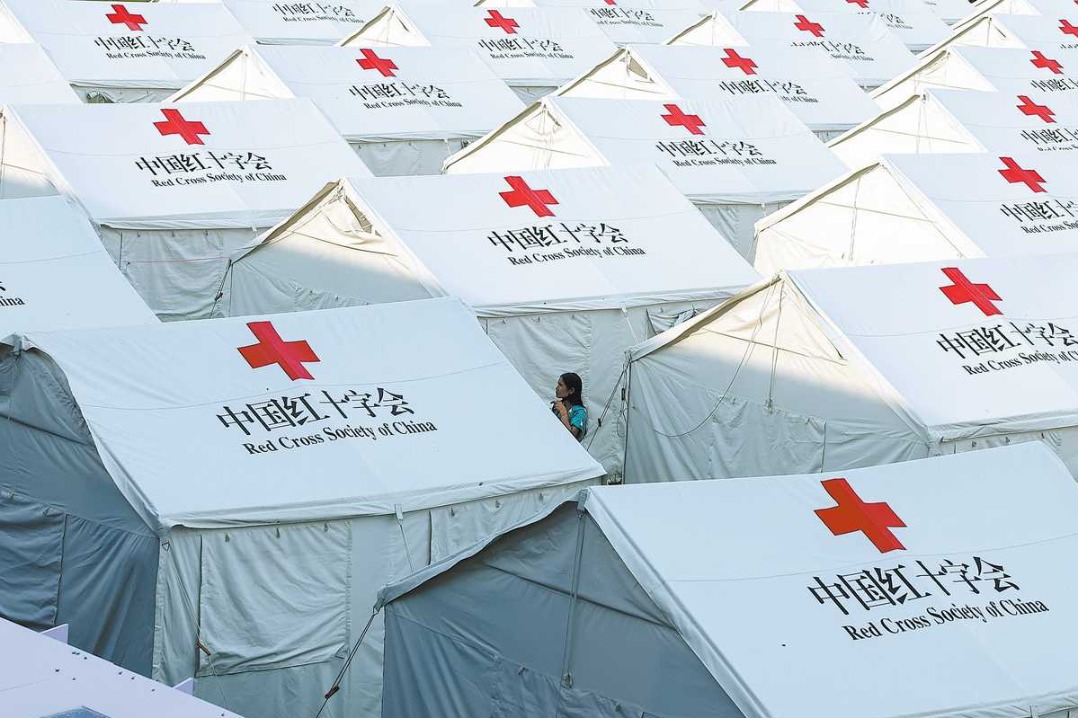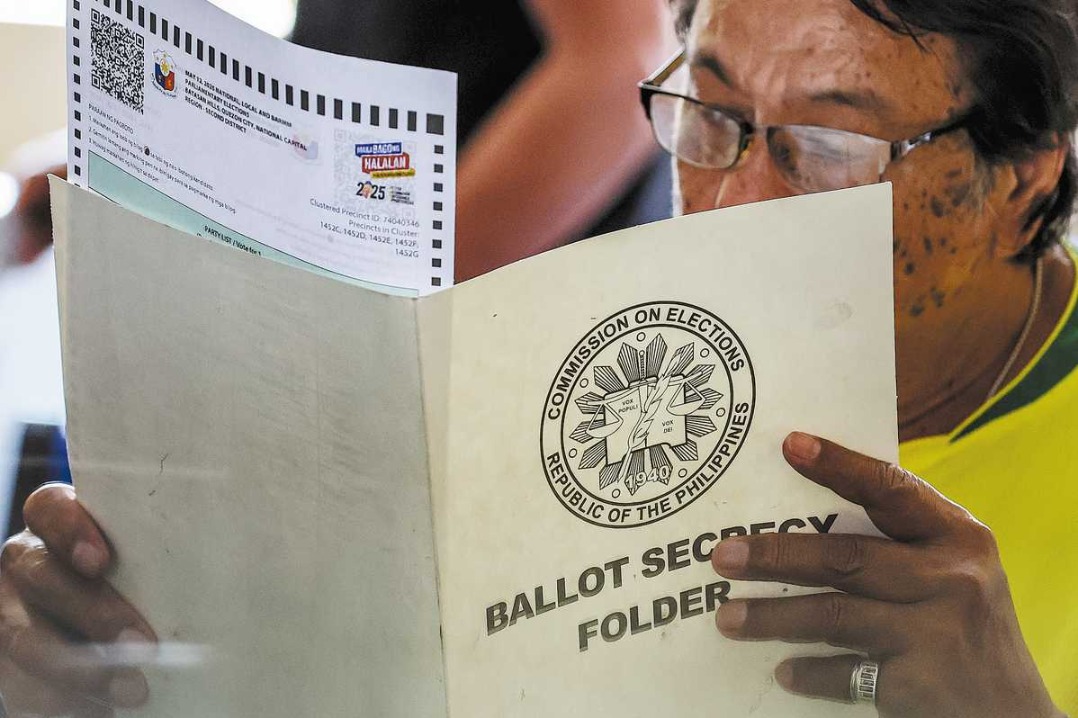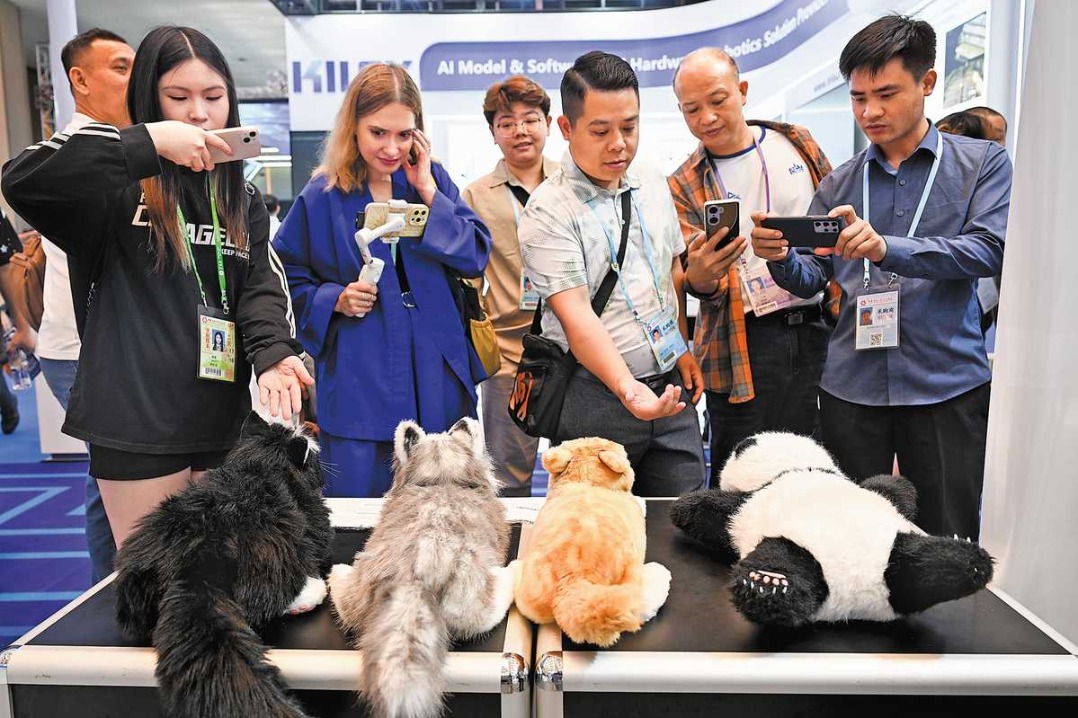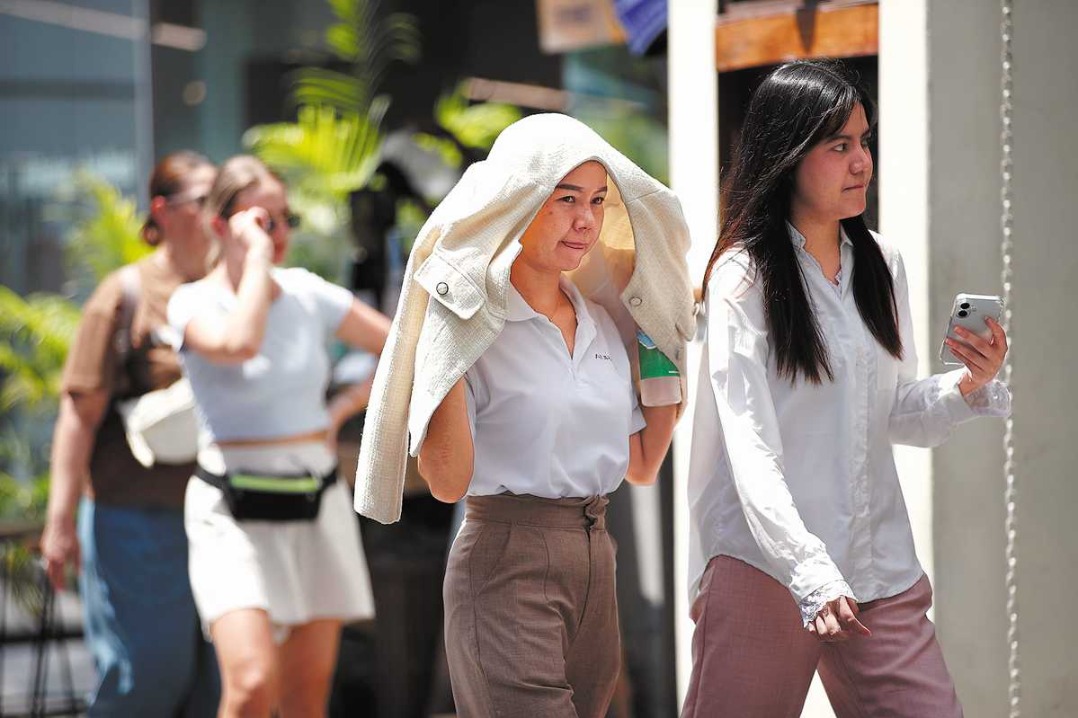US urged to honor legacy of solidarity
Experts, Flying Tiger descendants decry 'unreasonable' unilateralist approach


Born from the ashes of World War II, the United Nations was created 80 years ago with a commitment "to save succeeding generations from the scourge of war". But today, advocates of that vision fear for the future of the principles that have sustained global peace and prosperity as the United States retreats from multilateral cooperation.
Among the voices calling for a renewed commitment to multilateralism are descendants of the Flying Tigers, the volunteer pilots from the US who fought alongside China to resist fascism during World War II. These advocates said the heroism and friendship forged in battle serve as a reminder of what is possible when nations unite.
Charlene Fontaine, executive director of the Flying Tigers 69th Depot Repair Squadron Association and daughter of Flying Tigers veteran Stewart Fontaine, often wears a pin shaped like wings — gifted by the daughter of a Chinese World War II pilot — as a personal symbol of that history.
"Person-to-person engagement can establish a phenomenal relationship that grows into a very deep friendship, like our dads did 80 years ago," Fontaine said. "That, to me, is the most important thing on our planet."
She said she was disappointed with the recent actions of the US government, including withdrawing from international agreements, which she saw as shortsighted.
"My life was shaped by my father's experiences in China, so I tell my nieces and my nephew how important it is," Fontaine said, stressing that education is key to preserving the lessons of the past.
"If we educate the youth … and they learn the history of World War II and the relationships that grew out of those, the sacrifices of both countries — especially the Chinese people — we can build a better future."
However, that cooperation remains largely unrecognized in the United States, said Stephen Loane, whose father trained Chinese pilots during the war.
"It's less known that Chinese people built the airports from the ground up, breaking stones with hammers to make runways," he said.
"When the airports were bombed, these same people ran out and filled in the holes. Their courage enabled the fighter pilots to continue launching attacks.
"It's my hope that by telling these stories we can let people know that there is a long history of friendship and cooperation.
"Because of this cooperation, the fascists were defeated, and we must remember that the fascists may come back, and we have to be ready for them again."
Like Fontaine, Loane is worried that the United States is turning its back on a legacy of partnership and cooperation.
"Those who are educated in history have a better understanding than those who use quick political slogans to demonize a people," he said. "We should use our prosperity to build peace and friendship, not weapons of war."
Larry Jobe, president of the Flying Tiger Historical Organization, also called on US leaders to return to the principles that built the postwar order.
"We must cultivate understanding and respect for different values, traditions, laws and rules. International systems only work if they are based on mutual agreement and consent," he said.
Recent US policy has seen a retreat from multilateralism and established international norms. In February, President Donald Trump signed executive orders to withdraw the country from some UN organizations, halt funding and launch a comprehensive review of all US commitments to international organizations.
These moves reflect his "America First" governance approach, prioritizing perceived national interests over multilateral cooperation, said Stewart Patrick, a senior fellow at the Carnegie Endowment for International Peace in Washington.
These actions are not only misguided but dangerous, Patrick wrote in a commentary.
"Trump's America First policies will accelerate the fragmentation of a tottering world order already beset by rising geopolitical competition, surging populist nationalism, stalled development, destabilizing technologies and a deepening climate emergency," he wrote.
Weakened position
Recent polls show that public opinion in the US does not support this shift. A Pew Research Center poll found last month that most US people disapprove of the country's decisions to leave the World Health Organization, exit the Paris Agreement and cut US foreign aid. Another Pew survey revealed that a majority believe the Trump administration's actions have weakened the US' position globally.
Wang Hua, chair of the national board of directors of United Chinese Americans, called the retreat from multilateralism deeply concerning.
"The United States has historically been a cornerstone of the global order, yet now, under the misleading banner of America First, we're witnessing an abandonment of international commitments and norms," he said, adding that this shift represents a troubling regression.
Because of the US' central role in shaping the postwar world, its withdrawal from that role destabilizes the entire system, Wang warned.
"The United States is now acting unilaterally, with little regard for allies or adversaries alike," he said. "This approach is not only unreasonable, but ultimately self-defeating."
Rather than abandoning global cooperation, Wang said the US should embrace it, especially as one of the major beneficiaries of globalization.
"While globalization has created challenges, the solution lies in greater cooperation, not isolation," he said. "Through genuine collaboration, we can prosper together."
liazhu@chinadailyusa.com

















